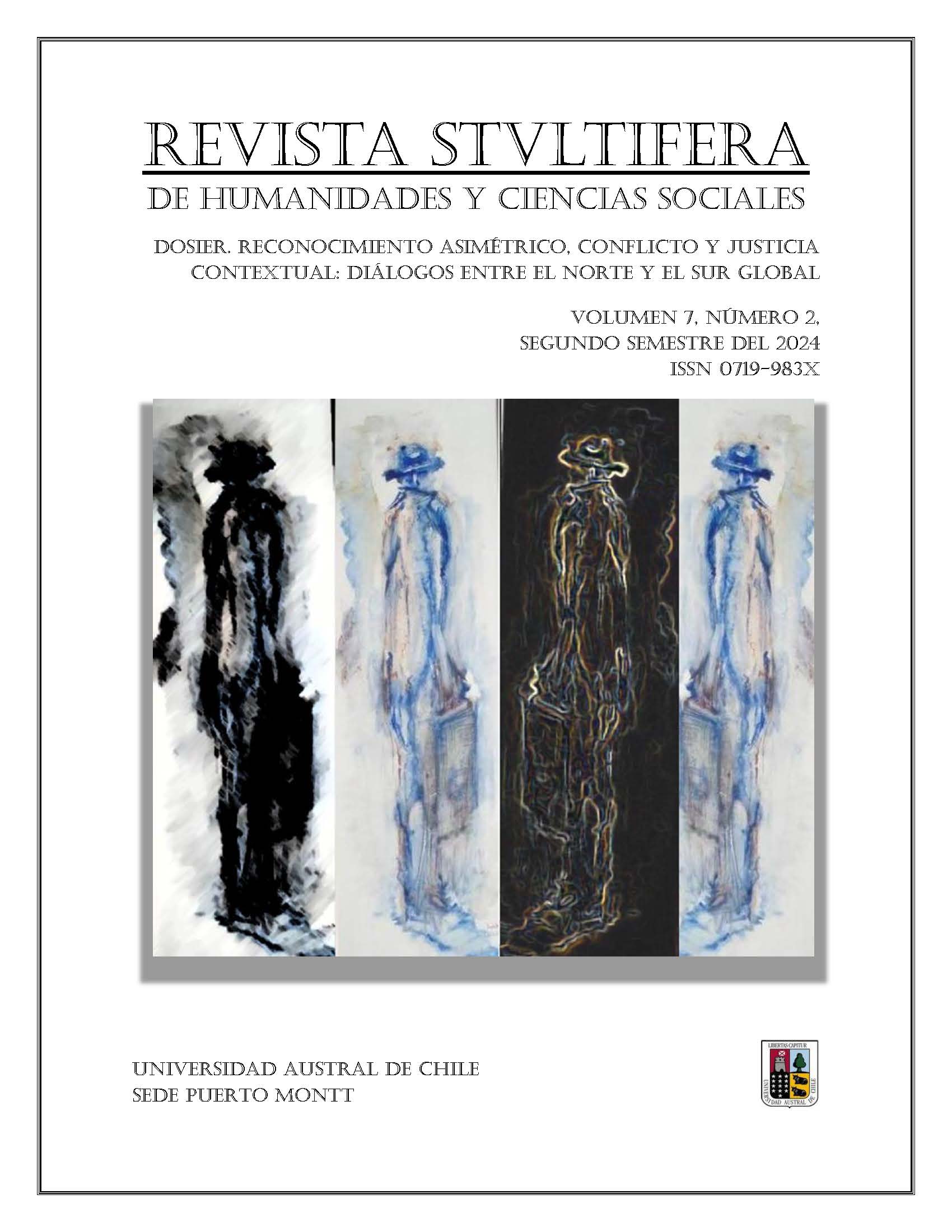Kant's Moral Philosophy and the Theory of Recognition in German Idealism
Main Article Content
Abstract
The purpose of this essay is to reflect on the question "What is morality?" in light of the importance of Kant's practical philosophy in the genesis of the theory of recognition in German idealism. With this pourpose, in a first moment (a) we will present a synthesis of Kantian moral philosophy. In a second moment (b) we will give a brief account of Fichte's critique of Kant based on the theory of recognition. In a third moment, (c) we will seek to give an account of the innovation that Schelling introduces to recognition, to then (d) sketch how this reproach finds continuity with Hegelian moral philosophy and in the conclusion, (e) make a synthesis of the debate as the response that from Kant's perspective could be attempted.
Article Details

This work is licensed under a Creative Commons Attribution-NonCommercial 4.0 International License.
Usted es libre de compartir (copiar y redistribuir el material en cualquier medio o formato) y adaptar (remezclar, transformar y construir sobre el material). El licenciante no puede revocar estas libertades siempre y cuando usted siga los términos de la licencia.
La licencia se da bajo los siguientes términos:
Atribución: debe dar el crédito adecuado, proporcionar un enlace a la licencia e indicar si se realizaron cambios. Puede hacerlo de cualquier manera razonable, pero no de ninguna manera que sugiera que el licenciante lo respalda a usted o a su uso.
No comercial: no puede utilizar el material con fines comerciales.
Sin restricciones adicionales: no puede aplicar términos legales o medidas tecnológicas que restrinjan legalmente a otros de hacer cualquier cosa que la licencia permita.
References
Kant, I. (1900). Akademie-Ausgabe Bearbeiten. Kant's Gesammelte Schriften „Akademieausgabe“. Königlich Preußische Akademie der Wissenschaften, Berlin. (Citas según volumen y página).
Balbontin, C. (2020). Hegel y su teoría crítica del derecho: la posibilidad de una lectura pragmatista. Revista de filosofía, 77, 41-50. https://dx.doi.org/10.4067/S0718-43602020000100041.
Fichte, J. (1971). Fichtes Werke. Band I - XI. de Gruyter.
Hegel, G. W. F. (1967), Über das Wesen der philosophischen Kritik überhaupt und ihr Verhältnis zum gegenwärtigen Zustand der Philosophie insbesondere. Georg Olms Verlagsbuchhandlung.
Hegel, G. W. F. (1968a). Phänomenologie des Geistes. Nordrhein-Westfälische Akademie der Wissenschaften.
Hegel, G. W. F. (1968b). Glauben und Wissen. Felix Meiner Verlag.
Hegel, G. W. F. (1968c). Differenz des Fichteschen und Schellingschen Systems der Philosophie. Felix Meiner.
Hegel, G. W. F. (2009) Grundlinien der Philosophie des Rechts. Felix Meiner Verlag.
Hyppolite, J. (1974). Génesis y estructura de la Fenomenología del Espíritu (F. Fernández Buey, trad.). Península.
Schelling, F. (1957). System des transzendentalen Idealismus. Felix Meiner Verlag.
Schelling, F. (1978). Système de l’idéalisme transcendantale. Peeters.
Schelling, F. (1983). Nouvelle déduction du droit naturel. Ousia.


 https://orcid.org/0000-0001-6604-2957
https://orcid.org/0000-0001-6604-2957